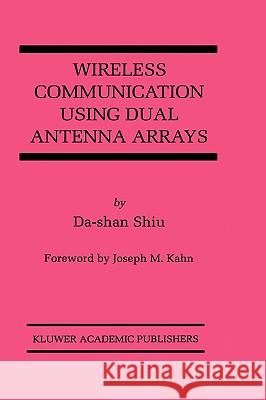Wireless Communication Using Dual Antenna Arrays » książka
Wireless Communication Using Dual Antenna Arrays
ISBN-13: 9780792386803 / Angielski / Twarda / 1999 / 128 str.
At present, the expansion of tetherless communications is a technological trend surpassed perhaps only by the explosive growth of the Internet. Wireless systems are being deployed today mainly for telephony, satisfying the ind- trialized nations appetite for talk-on-the-go, and providing much-needed communications infrastructure in developing countries. The desire for wi- less access to the Internet is starting to add fuel to the growth of tetherless communications. Indeed, the synergy of wireless and Internet technologies will lead to a host of exciting new applications, some of which are not yet envisioned. Future-generation wireless systems will achieve capacities much higher than the systems of today by incorporating myriad improvements. These in- vations include transmission in higher-frequency bands, smart antennas, multi-user detection, new forward error-correction techniques, and advanced network resource-allocation techniques. The term smart antenna usually refers to the deployment of multiple antennas at the base-station site, coupled with special processing of the m- tiple received signals. Smart antennas can adaptively reject co-channel int- ference and mitigate multipath fading, and have been identified by many as a promising means to extend base-station coverage, increase system capacity and enhance quality of service."











